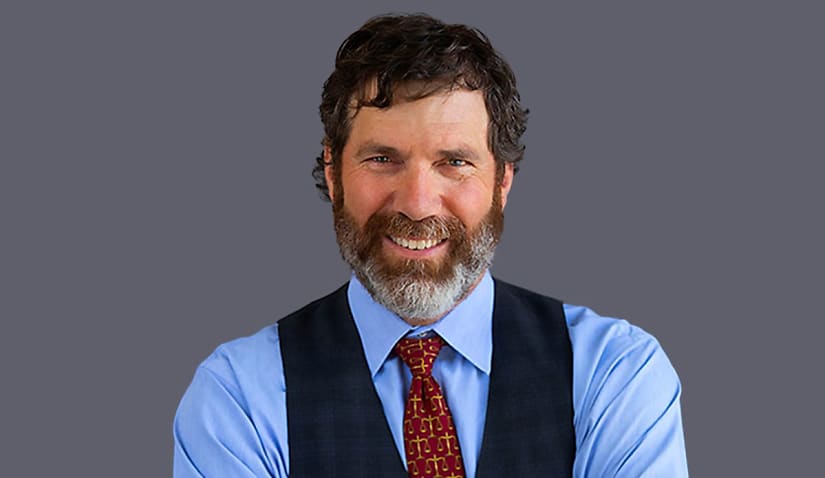Even for boutiques that aren’t looking to sell, having a succession plan in place — and allowing yourself the space to be able to work on big-picture ideas — should be a top priority, according to this former firm owner.

Mike Chastaine is an attorney based in California, where he is admitted to the bar. Speaking recently on The Boutique Lawyer Show, he discussed succession planning for smaller firms and how firm owners can grow their law firm into an asset to sell.
In terms of actually selling your firm, Mr Chastaine said that finding the right price is based on a lot of different things.
“Our firm was very niche in the type of practice area that we had. So, there weren’t a lot of people who would be able to take over the firm that I was running, but the bottom line is the value of that firm is going to be based on your data. Is the firm profitable? Are you paying yourself a salary? And on top of that, is the firm actually making money? And do you have systems in place that someone can buy? The real question is, what are they buying? What’s your name worth?
“So, I practised in Sacramento for 20 years. I had the same website for over a decade. That has a lot of value, and having a reputation. I had a radio show for almost five years. I do regular blogs. I wrote five books. The name had value to it,” he explained.
“And so, a lot of it depends on that, but at the end of the day, you have to have the numbers to show, just like any other business, that you’re profitable. This isn’t some Silicon Valley start-up where you hope you’ll make money. Nobody’s going to buy your firm unless your firm actually makes a significant profit each and every year.”
Separate from the financial aspect of things, there are a number of intangibles that can add value to a boutique, including the systems within a firm.
“Do you have systems, replicable, repeatable systems that you can readily pass down? It’s not just in my head, but it’s actually in a manual, and we have videos. So literally anyone who comes in to fill a position already has a training manual available for them. I think that that’s super valuable. And then can you project out? Is your practice area going to continue to be profitable? Things change over time,” Mr Chastaine added.
“And then during COVID, for example, we had a very robust DUI practice, but during COVID, all the bars and restaurants closed, so there were virtually no DUIs. So you have to recognise that things can change, but are you diversified enough, and do you have a solid enough practice that you can weather those storms? And can you prove it?”
Even if a firm owner is not looking to sell anytime soon, Mr Chastaine emphasised the importance of having a business plan in place.
“The truth is most lawyers who own law firms ... I shouldn’t say most — many wind up dying or becoming incapacitated in some fashion, and what happens to their clients? What happens to their firm? But the thing that really pushed me in this area was protecting my wife. So, my wife was involved with the firm, she was the office manager, but she’s not a lawyer, so she can’t own the firm. So, what did I have in place that would allow her to benefit from the years and years of work that we did, getting that firm together? That’s what a succession plan could do,” he added.
“You may not necessarily ever want to sell, but you do need to be in a position to protect your family and your clients. And so, there’s got to be some plan in place that would allow, at the very least, your clients to be protected and make sure your poor spouse isn’t the one stuck holding the bag.”
Being prepared like this can also mean that long-term succession planning is made much easier — particularly when smaller firms hire the help they need.
“In my firm, my basic rule was if it doesn’t require a bar card, I’m not going to do it. So, I have a bookkeeper, I have an accountant, I have a controller, I have phone people, I have people crunching the data, [and] I have people ordering the supplies. I don’t do any of that. Even before I sold it, obviously, I didn’t do any of that. I had people doing it for me so that I was freed up to do the big-ticket items, the $10,000-a-day decisions that change the course of the firm,” he concluded.
“But the other fallacy is that this doesn’t take nearly as long as everybody thinks. You don’t need to lock yourself in an office for six hours to figure out how to run your firm. There are people who can help you who’ve already been down that path, and all you gotta do is follow their guidelines, and it’s not rocket science. I have no great business acumen except for what I’ve learned by reading 15 minutes a day and investing in mentors and making it a priority to be profitable, and I think that that’s maybe the big piece.”
The transcript of this podcast episode was slightly edited for publishing purposes. To listen to the full conversation with Mike Chastaine, click below:

Lauren is the commercial content writer within Momentum Media’s professional services suite, including Lawyers Weekly, Accountants Daily and HR Leader, focusing primarily on commercial and client content, features and ebooks. Prior to joining Lawyers Weekly, she worked as a trade journalist for media and travel industry publications. Born in England, Lauren enjoys trying new bars and restaurants, attending music festivals and travelling.